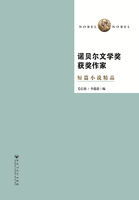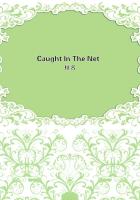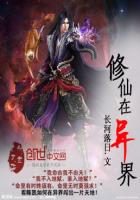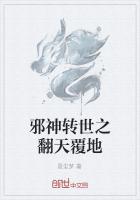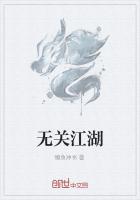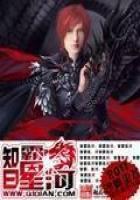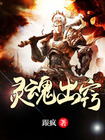Then rising and taking advantage of the moonlight that flooded the desk, he set himself to mend the broken lock with a large mechanical clasp-knife he produced from his pocket, and the aid of his workmanlike thumb and finger. Presently he began to whistle softly, at first a little artificially and with relapses of reflective silence. The lock of the desk restored, he secured into position again that part of the door-lock which he had burst off in his entrance. This done, he closed the door gently and once more stepped out into the moonlit clearing. In replacing his knife in his pocket he took out the letters which he had not touched since they were handed to him in the darkness. His first glance at the handwriting caused him to stop. Then still staring at it, he began to move slowly and automatically backwards to the porch. When he reached it he sat down, unfolded the letter, and without attempting to read it, turned its pages over and over with the unfamiliarity of an illiterate man in search of the signature. This when found apparently plunged him again into motionless abstraction. Only once he changed his position to pull up the legs of his trousers, open his knees, and extend the distance between his feet, and then with the unfolded pages carefully laid in the moonlit space thus opened before him, regarded them with dubious speculation. At the end of ten minutes he rose with a sigh of physical and mental relaxation, refolded the letter, put it in his pocket, and made his way to the town.
When he reached the hotel he turned into the bar-room, and observing that it happened to be comparatively deserted, asked for a glass of whiskey. In response to the barkeeper's glance of curiosity--as Uncle Ben seldom drank, and then only as a social function with others--he explained:--"I reckon straight whiskey is about ez good ez the next thing for blind chills."
The bar-keeper here interposed that in his larger medical experience he had found the exhibition of ginger in combination with gin attended with effect, although it was evident that in his business capacity he regarded Uncle Ben, as a drinker, with distrust.
"Ye ain't seen Mr. Ford hanging round yer lately?" continued Uncle Ben with laborious ease.
The bar-keeper, with his eye still scornfully fixed on his customer, but his hands which were engaged in washing his glasses under the counter giving him the air of humorously communicating with a hidden confederate, had not seen the school-master that afternoon.
Uncle Ben turned away and slowly mounted the staircase to the master's room. After a moment's pause on the landing, which must have been painfully obvious to any one who heard his heavy ascent, he gave two timid raps on the door which were equally ridiculous in contrast with his powerful tread. The door was opened promptly by the master.
"Oh, it's you, is it?" he said shortly. "Come in."
Uncle Ben entered without noticing the somewhat ungracious form of invitation. "It war me," he said, "dropped in, not finding ye downstairs. Let's have a drink."
The master gazed at Uncle Ben, who, owing to his abstraction, had not yet wiped his mouth of the liquor he had imperfectly swallowed, and was in consequence more redolent of whiskey than a confirmed toper. He rang the bell for the desired refreshment with a slightly cynical smile. He was satisfied that his visitor, like many others of humble position, was succumbing to his good fortune.
"I wanted to see ye, Mr. Ford," he began, taking an unproffered chair and depositing his hat after some hesitation outside the door, "in regard to what I onct told ye about my wife in Mizzouri.
P'r'aps you disremember?"
"I remember," returned the master resignedly.
"You know it was that arternoon that fool Stacey sent the sheriff and the Harrisons over to McKinstry's barn."
"Go on!" petulantly said the master, who had his own reasons for not caring to recall it.
"It was that arternoon, you know, that you hadn't time to hark to me--hevin' to go off on an engagement," continued Uncle Ben with protracted deliberation, "and"--"Yes, yes, I remember," interrupted the master exasperatedly, "and really unless you get on faster, I'll have to leave you again."
"It was that arternoon," said Uncle Ben without heeding him, "when I told you I hadn't any idea what had become o' my wife ez I left in Mizzouri."
"Yes," said the master sharply, "and I told you it was your bounden duty to look for her."
"That's so," said Uncle Ben nodding comfortably, "them's your very words; on'y a leetle more strong than that, ef I don't disremember.
Well, I reckon I've got an idee!" The master assumed a sudden expression of interest, but Uncle Ben did not vary his monotonous tone.
"I kem across that idee, so to speak, on the trail. I kem across it in some letters ez was lying wide open in the brush. I picked em up and I've got 'em here."
He slowly took the letters from his pocket with one hand, while he dragged the chair on which he was sitting beside the master. But with a quick flush of indignation Mr. Ford rose and extended his hand.
"These are MY letters, Dabney," he said sternly, "stolen from my desk. Who has dared to do this?"
But Uncle Ben had, as if accidentally, interposed his elbow between the master and Seth's spoils.
"Then it's all right?" he returned deliberately. "I brought 'em here because I thought they might give an idee where my wife was.
For them letters is in her own handwrite. You remember ez I told ez how she was a scollard."
The master sat back in his chair white and dumb. Incredible, extraordinary, and utterly unlooked for as was this revelation, he felt instinctively that it was true.
"I couldn't read it myself--ez you know. I didn't keer to ax any one else to read it for me--you kin reckon why, too. And that's why I'm troublin' you to-night, Mr. Ford--ez a friend."






